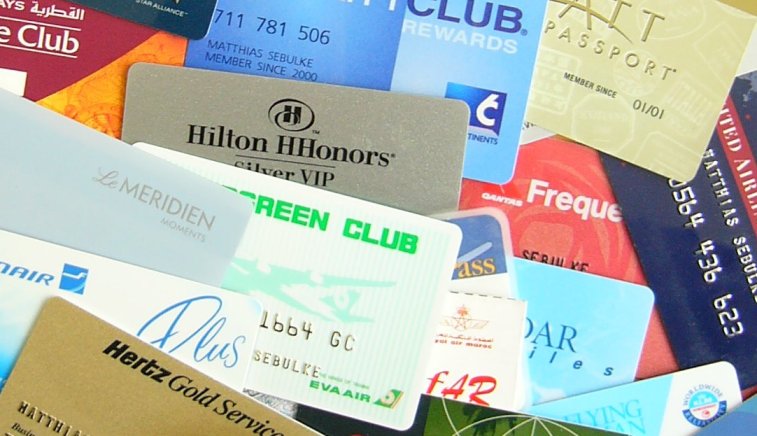Fewer than two out of every ten Canadians say they get value or benefit from so-called loyalty programs – yet about ninety per cent of us are members of one!
In a revealing and sometimes perplexing survey of consumers around the world, Aimia, the marketing and loyalty analytics firm, has published data and analysis from a recently conducted second annual survey to determine how consumers feel about the way businesses use their data.
As consumers, we give them information about ourselves; they give us … what exactly? Usually, businesses give us the chance to give them something else: money (when we purchase their product or service).
Aimia’s latest Global Loyalty Lens report surveyed more than 20,000 consumers across 11 countries, including Canada. The results give pause: Eight in 10 (80 per cent of consumer respondents around the world) are willing to share key pieces of personal information with brands. Yet only eight per cent feel they are actually receiving better offers from companies as a result of sharing that data.
Of the 89 per cent of Canadians respondents who said they belong to a loyalty program (slightly higher than the overall global response), as many as 79 per cent say they want to know more about the consumer information companies are collecting, and how it is used. An equally high number, 83 per cent, said they want more control over the data that companies hold.
It may be a bit late.
Nearly three-quarters (74 per cent) of Canadian respondents say they are concerned that sharing their contact information or personal data will lead to them being targeted for irrelevant marketing campaigns.
So why do people sign up for loyalty programs? Particularly when they say they don’t get value from the membership? When they have concerns about the cost of membership, and when that cost is the use and control of their personal data?
(In full disclosure, yes, I am a member of one national loyalty program. I get points; they have my e-mail address, purchase history and some other information. Yes, I use the points, but only when I buy stuff from the company. That’s two for them – my info and my money – one for me, as the points do bring a slight discount when I buy something.)

Loyalty programs do offer various features, rewards and incentives to consumers, as the program operators seek to encourage repeat customer visits to their retail outlet or property.
Loyalty programs do offer various features, rewards and incentives to consumers, as one way the program operators seek to encourage repeat customer visits to their retail outlet or online property.
When that works, the loyalty and incentive programs are seen to benefit the providers by driving incremental sales, and delivering to them valuable customer insights.
That descriptive word is important: the data people provide is valuable. Consumers may be unaware of the value of the information they give up, in one sense because it is so easy to do so – just a few keystrokes or finger swipes. But make no mistake, even an e-mail address has real business value. Think about anti-spam and telemarketing laws in Canada, for example: in some ways, a business cannot even prospect for a new customer without some sort of permission or willingness being expressed by the consumer to be contacted.
Giving out an email address or mobile phone number conveys that permission, and so the company has three years – three years! – in which it can continue to contact the consumer, and solicit business from the consumer, based on the data it has collected and is still storing.
Under CASL, Canada’s Anti-Spam Law, without a willingly surrendered email, a business cannot ‘make a cold call’ if you will, to anyone!
But as the survey indicated, many of us do give our emails and phone numbers to loyalty programs: in the world of big data analytics, those seemingly simple and inconsequential bits of personal information can really add up.
Taken in aggregate, disparate data bits have enormous commercial value: loyalty programs can put together dozens of ‘touch points’ and deliver rather complete profiles of a consumer as a result.
Those touch points are data-recorded activities such as a person’s age, sex or nationality; their history of purchase decisions; geo-location readings and information about the time spent in various locations; frequency of interaction with friends and family across social media platforms; lifestyle hobbies and interests; occupation and income level; charge card usage, online shopping habits and much more.
To be truly equitable, at the very least, loyalty programs must give—and be seen to give— something of real and equal value in return for the personal information being provided to them.
“This is a golden moment for brands,” David Johnston, Aimia Group Chief Operating Officer, said of the opportunity for marketers employing loyalty programs. “[B]ut this opportunity will quickly disappear if companies fail to respond appropriately. Companies must provide recognition and offers that cater to what the customer wants, not what the company wants.”
Certainly trust is a big factor. So, too, real reciprocity, as Johnston advises. Of course, there’s a need for privacy and security in the process, as well.
In fact, as many as 20 per cent of Canadians have closed their accounts or ended their subscriptions over concerns about how their personal information was being managed. The Aimia survey also indicates that some online consumers are taking steps to increase security by limiting online tracking and advertising, and they are deleting cookies and selecting do-not-track options.
So if loyalty and incentive programs are to be a key component of the new online economy, these issues have to be addressed, program corrections need to be made, and more tangible value for consumers needs to be delivered.
Anyone want to sign up for that program?
# # #
So, what’s your tech?
What has been your experience with loyalty programs? Are they ‘worth it’? What do you think your personal data is worth?



